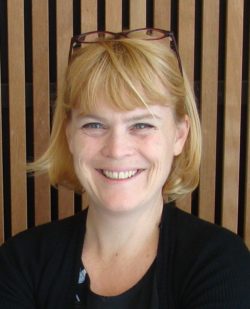Priestley Centre contributors to new IPCC report put emphasis on solutions

Scientists from the Priestley International Centre for Climate selected to contribute to the IPCC Sixth Assessment Report (AR6) are stressing the need for a shift of emphasis to climate solutions
The eight academics, which include Priestley's director and three Priestley Chairs, are spread across all three working groups for the report, giving the University of Leeds climate change centre among the highest level of representation of any UK university.
A total of 721 experts from 90 countries have been invited to participate in the global report, which is the next comprehensive assessment of the science relating to climate change and is used to inform policymakers, international climate negotiators and other stakeholders.
Three Priestley scientists are in Working Group I, which is responsible for the physical science basis of the assessment. They are: Prof Piers Forster (co-ordinating lead author), Dr Amanda Maycock (lead author) and Prof Suraje Dessai.
Working Group II, which looks at impacts, adaptation and vulnerability, has Prof Lindsay Stringer and Prof Lea Berrang Ford (Priestley Chair in Climate and Health) as lead authors.
Professor Julia Steinberger and Priestley Chair Prof Jan Minx (Climate Change and Public Policy) are both lead authors on Working Group III, which covers mitigation of climate change, while another Priestley Chair, Prof Jason Lowe (Interdisciplinary Climate Research) is review editor.

Prof Lea Berrang Ford
“Selection as a Lead Author is recognition of Leeds' emerging leadership in knowledge synthesis for climate solutions” said Lea Berrang Ford. “I am on Chapter 16, which will synthesize insights on impacts and responses across sectors and regions, and integrate considerations from adaptation and mitigation.
“It is a herculean task, but also an exciting one.”
Jan Minx, who was on the previous IPCC assessment report (AR5, published 2013/2014) as Head of the Technical Support Unit for Working Group III, said: “The IPCC is strong on climate science – we need a strong shift towards solutions now. Consolidating scientific evidence in this area will be key for political negotiations and key for the future of the Paris Agreement.”
Jason Lowe, a member of the IPCC task group on data and scenario support for impacts and climate analysis, agrees. “The IPCC assessment will provide a major source of evidence for policy makers plotting a route towards a low carbon future.
“The previous IPCC reports took a major step forward in defining the problem. This time the assessment must focus on helping nations manage climate risks.”
